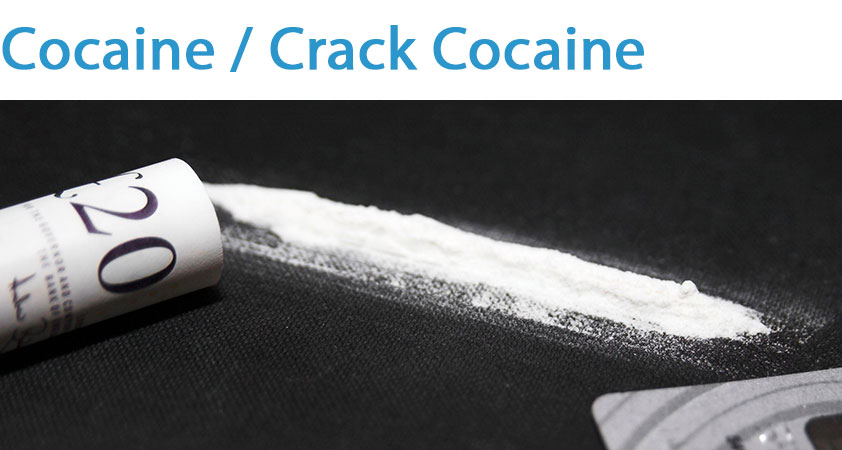If there was one drug which seemed to sum up excess, it was cocaine. The alleged narcotic of choice of Hollywood producers, movie stars and upwardly mobile business executives; many seemed to have a romanticised notion of cocaine. But the fact is cocaine addiction can have damaging, often irreparable consequences, be it personally, professionally and especially to your health. There is no question of the adverse effect it can have to your wellbeing, and may even be ultimately life-threatening, if unchecked.
Cocaine, in its instantly recognisable white powder, originated from Erythroxylon coca or the coca plant. It comes from a plant indigenous to South America known as coca shrub leaves. The drug is a short-acting, but overpowering stimulant, taken recreationally. The narcotic is known by many names, from abbreviated to coke or C, to being referred to as Charlie. It is taken for its euphoric properties, while some combine it with other stimulants, or drugs like heroin, to heighten its effects, or get a better high, despite the risks.
But people choose to use cocaine for its physical effects, and what it does to the brain and body. The fact is cocaine is the second most addictive drug in the world. This is due to the affect it has on the nervous system and the reward pathway in the brain, which is overwhelmed by a surplus of natural chemicals, making you feel good. Enhancing feelings of happiness, pleasure and reward, as well as making you feel more confident, energised and motivated, amongst other effects. However, many believe if you struggle with these feelings in everyday life, or tend to use substances recreationally, you may be susceptible to addiction.
The brain contains the chemical dopamine, which neurons release when you feel happy or pleasure, before it is recycled and returns to the neuron. But cocaine prevents the chemical from being recycled and it begins to accumulate. If you take cocaine, it leads to large amounts of dopamine being released, creating a sense of euphoria. However, if you use cocaine for too long, it can change the reward system, resulting in dependency.
Cocaine can be taken in many ways, but, when it comes as a powder, it is mostly snorted up. If you choose this method, you may feel the effects quicker, but they may only last up to thirty minutes. However, if sniffing up the drug, you may suffer physical symptoms, from losing your sense of smell and having trouble swallowing, to experiencing hoarseness and sinusitis, to name but a few.
The drug can also be smoked or injected intravenously in a solution, often referred to as “shooting up”, which is considered the most dangerous method. It can increase your chances of blood infections and suffering an overdose, among other conditions.
When contemplating the risks of using cocaine, it is not surprising many people wish to free themselves of their addiction and stop using, before it’s too late. They can learn how to live without cocaine by entering a residential rehab centre and beginning a rehabilitation treatment programme.
From the moment you arrive at the rehab clinic, the staff will make you feel welcome and help you settle in. The medical team may carry out an assessment, while taking a medical history, and familiarising themselves with any past association you may have with addiction.
You will then be ready to commence your rehab, which will begin with a medically observed detoxification. The procedure where you will stop taking cocaine, as all traces of the drug are weaned from your system. A process which may leave you feeling powerful cravings, along with harsh, often unpleasant withdrawal symptoms.
Therefore, it is not advised you carry out a detox on your own but under supervision in a rehab centre, overseen by experienced medical professionals. They can help you manage the effects of withdrawal and provide the necessary medication to alleviate the symptoms.
When the brain has become accustomed to the effects of cocaine, it can have trouble producing neurotransmitters on its own. However, as the brain struggles to operate without the drug, there are medications you can take to relieve the central nervous system. There is also a drug called modafinil a doctor can prescribe, to increase the production of dopamine, amongst other medications.
Detoxification and medication, alongside counselling, play pivotal roles in your complete rehabilitation programme. Once you have concluded medical detox, you can concentrate on the psychosocial side of addiction where, by speaking with a counsellor, you can address any issues, past or present, which may be driving you to use cocaine.
It is also becoming increasingly common to employ modern techniques like cognitive behavioural therapy (CBT) and holistic therapies like mindfulness and meditation, when treating substance abuse
If you are ready to say goodbye to dependency, there are numerous options open to you. You don’t have to feel as if you are trapped, and there is no alternative. By signing up to stay at a residential rehab centre, you will be making a great step forward in your battle against cocaine addiction.

